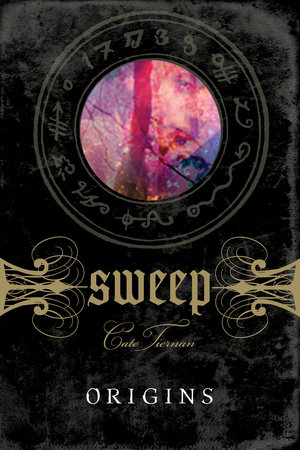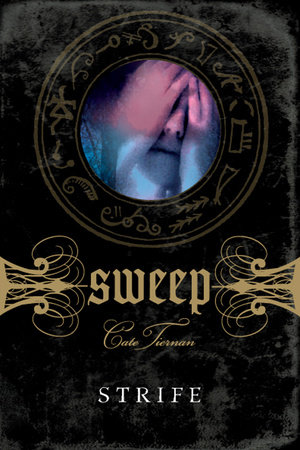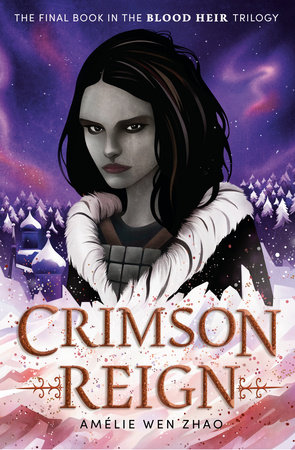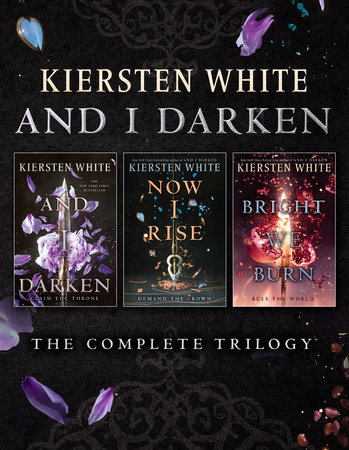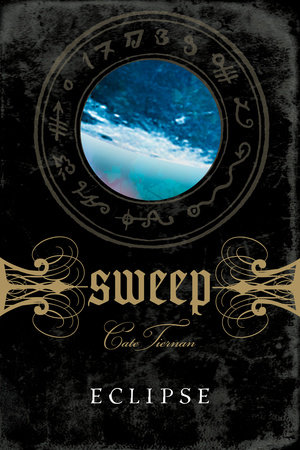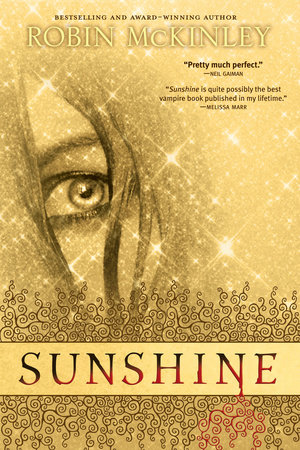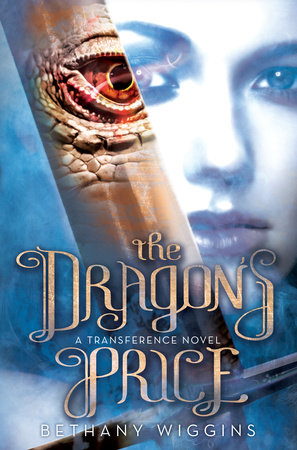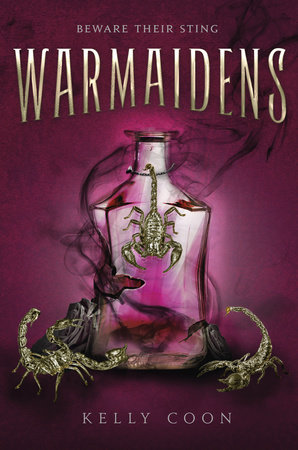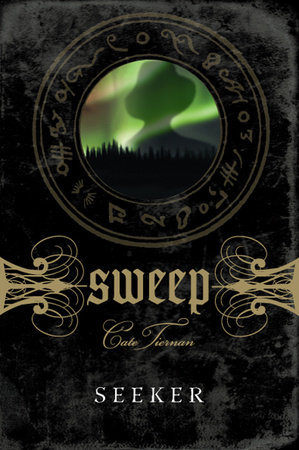PLUG: You’ve had a large amount of success with your books, developing a large fan base and even some sites on the internet that are dedicated to you. How does this affect your perception of your writing? Is it a mixed blessing?
MCKINLEY: I do answer almost all the letters my agent and publishers forward to me (except the actively abusive ones which fortunately are very rare), but I avoid being dismayed by the conversations among readers at my web site by never visiting it. I don’t know for a fact that it (I hope it’s only an it, and not a they) still exists.
I’m not going to be able to describe this very well, it may have to be something you’ve experienced, and you probably also have to have a certain kind of personality, but I find the whole business of fan conversation about the subject of their interest very unsettling. My own view of my books and characters is inevitably different from any reader’s because of the way I have lived with them in the process of writing them. I do occasionally receive letters or questions from a live audience about something in one of my books that I don’t remember (which is always very embarrassing) but no matter how many times a reader may have read something, and how much better a memory or an analytical intellect they may have, their perspective is different. I know that some authors enjoy detailed conversations with their fans about their work; I don’t. I feel as if we’re speaking two different languages with only a few dozen words in common, and the words in common have subtly crucial differences in meaning.
(Unfortunately my experience of being the subject of fan attention means that I can’t have fan conversations of my own, and being a devotee of Deep Space Nine this is a considerable deprivation. I’ve tried telling myself that it must be a profoundly dissimilar creative process, writing scripts or directing and producing them or acting roles, but I don’t believe this enough to do my earnest worshipful fan-self any good. Maybe it’s just I remember I tend to make a horse’s ass of myself when I meet someone I admire, and feel I’m safer staying away from all temptation.)
Having said all this though I will add that book mail, when a reader is addressing me directly, is often a great pleasure. (School assignment letters ‘I am writing to you because I have to write a school report your books are okay I guess but I’d rather be playing Quake will you please answer the following eighty-six questions by next Tuesday’ and letters that want to tell you that you did everything wrong excepted.) I learn useful things both good and bad about how my books are read from readers who write to me about them, and yes, I want my books read, and so I want to write them as readably as I can. (“Readably” is not a euphemism for “easily.” I hope that to get the best out of my books a reader has to work at it a little, has to engage with the story, involve their brain and heart.) I suppose the ultimate, unreachable goal would be to have or read or overhear those fan conversations where both I and my readers were speaking the same language actually this does happen occasionally, and when it does it makes my year. But I have a way to go as a writer to communicate that effectively with more than the very occasional reader; and unfortunately some readers never get over the fact that they want you to have written some other book, and there’s nothing I or any writer can do about that. So while the short answer to your question is that yes, my “fan base” and “success” are a mixed blessing, they are a blessing, and I am very grateful to have them.
PLUG: You’ve said before that many of your books spring from dreams or half-visions you have—could you tell us more about this? What was the vision behind Rose Daughter?
MCKINLEY: I wrote an essay, a sort of longer version of the afterword in the book, which my hardback house brought out as a pre-pub flyer, and I talk a little more about that there. After the conversation with my friend in New York City about writing a short-story version of Beauty and the Beast for him and his illustrator, and after having said a very firm “No!” because of course I had said all I had to say about that tale in my novel BEAUTY almost twenty years ago: “On the plane coming home I had the sort of half-vision that very often heralds the beginning of a new story. I thought: Her earliest memory was of waking from the dream. It was also her only clear memory of her mother. I thought: This is something to do with Beauty and the Beast. How very extraordinary.” And, sitting, or rather spinning, in one of those madly uncomfortable plane seats, all of whose bends and bulges seem to be carefully designed to hit you in the wrong places, while the sun comes dreadfully up and you know it’s still the middle of the night, I found myself in that dream and in that corridor Beauty dreams of, with the monster at the end of it, waiting for her.
A few weeks later I thought, oh well, why not, I’ll give that short story a try. Then I wrote a novel by accident. I have to say that several of my novels (and I haven’t written that many) have been that sort of accident, something I thought was short and wasn’t. BEAUTY was supposed to be a short story too.
PLUG: Why do you think you have such a strong response to the story of Beauty and the Beast? What do you think about its various pop culture interpretations, especially the Disney movie that was based on it?
MCKINLEY: I don’t know why my response to Beauty and the Beast is as strong as it is. I can tell you that when I was growing up in the fifties, B&B was the only fairy tale I ever read that has the heroine doing something rather than drooping like a tulip in a vase and waiting to be rescued by the hero. I was a girl and I wanted adventures; I didn’t want to hang around on some hero’s arm and agenda. This model for autonomy was very important. But as I grow older, and especially after having discovered a whole second novel-length Beauty and the Beast waiting for me to write it, I realise that being responsible for yourself is not the only critical element for me. It’s also something about the particular quality of love and faith and loyalty between Beauty and the Beast; there are no Black Knights by the ford, there are no glass mountains, there are no topless towers in this story, there is only patiently getting to know each other. And the dangerous climax in ROSE is brought on by love and faith, not tricky cleverness or superiority in arms. Beauty and the Beast is also, of course, about refusing to let the surface of things dictate your life or your choices. And this, I think, is why Beauty’s family in both my books is kind and careful, rather than selfish and bullying as in the usual versions. Beauty is in no way driven to make her choices as she does: this is also very important. I also want to believe that gentleness and thoughtfulness about other people is the standard, and that Beauty isn’t so extraordinary by possessing such virtues! Well, all right, it’s a fairy tale!
I haven’t and won’t see the musical of Beauty and the Beast. I did, finally, see the movie, and of it I say, tersely, that I… didn’t hate it as much as I expected to. There isn’t actually a lot there to hate; it’s all too fluffy. (Although the teacup and his mum got on my nerves pretty hard.) But if Disney shared my vision of what is important about this or any other fairy tale, they wouldn’t be Disney. Of course if I shared their vision I would probably have more money in the bank. But I bet I have more interesting dreams.
PLUG: Did you reread your book Beauty while preparing Rose Daughter? Did you feel an impetus to avoid some of the details and interpretations you had developed in the earlier work while you were writing Rose Daughter?
MCKINLEY: I reread most of Beauty after I’d already written the first draft of Rose (and found out, among other things, that it was a novel), just to make sure, knowing how bad my memory can be about everything including my own books, that I hadn’t repeated anything I didn’t want to repeat. And I hadn’t. I think that the only common elements (like the decency and good-heartedness of Beauty’s family) between the two books are deliberate.
PLUG: Many of your books have won awards and recommendations as books for children and young readers. Do you aim your books at that audience? Why do you think they are sometimes perceived as being for younger readers?
MCKINLEY: No, I don’t “aim” my books at any particular readership. The story is the story and it will tell you how to write it, if you listen. I realise that there are so many books published that bookstore buyers and librarians and casual browsers and so on must have some guidelines, and that age groupings are a useful guideline, but I feel very discouraged sometimes when it seems to me that rather than being a guideline a suggested age group is used as some kind of standard that you and your book can be failed by. There were several reviews of Rose that said it was too long and/or complicated for younger readers as if this meant I’d done it wrong. It seems to me that all it means is that it shouldn’t be pushed on younger readers. There was one rather important review which roundly hated the book and began by saying that it has nothing to say to elementary school readers. It wasn’t written for elementary school readers, although I know from my book mail that some elementary school readers read it (some of them even liked it). This is kind of a sore subject, I have to admit. I still occasionally receive outraged letters from teachers and classes, generally fifth grade for some reason, telling me that Hero, which is the book that won the Newbery Medal which is a children’s-lit award, is ‘too difficult’. It’s the outrage that burns me. The book is what it is; some fifth graders will read it easily and some won’t. I also received some fairly spectacular hate mail for Deerskin, which is, and was meant to be, a more difficult and bleaker book, telling me I had “betrayed my audience” and was a vile human being to tackle such a subject at all and so on. Deerskin was even published as an adult book for adults partly, I hoped, as a clue that it wasn’t for younger readers and perhaps the clue worked with some people. It certainly didn’t with others.
I write my books for the people who want to read them. I would have been reading my books in fifth grade, if someone had been writing them then, but then I was a ‘good reader’. I am very, very pleased and grateful that enough people, of whatever ages, do want to read my stories that I earn enough money in sales to stay at home and write more stories… but I also wish there were a way to get out of the genre racket. Fantasy and science fiction are a racket just like suitable age recommendations are: the implicit message is that fairy tales and space adventures are for children or childish grown-ups. (There’s a tangential rant here, most of which I will spare you, to do with the idea that patronising children and children’s books is okay. Sounds to me like a good way to teach children that reading is something you grow out of.) It does seem to me that SF has to some degree broken out of its bounds; I see science fiction reviewed sometimes as if it were, gasp, novels and short stories like other novels and short stories, literature even. I see this less with fantasy. (So-called high fantasy anyway. Certain kinds of magic realism have been deemed worthy. I am underwhelmed by a lot of the magic realists, but Alice Hoffman who for the purposes of this argument comes under this heading is one of my favourite writers.) The big fantasy books sell very well (I say a little wistfully; I’ve never been among them) but they aren’t taken seriously. They’re, you know, fantasy. They aren’t real. Science fiction is at least based on science. Fantasy is mere escapism, it has nothing to say about the human condition, about our lives here and now. Ha. Some of it is escapism, sure; some of literature is escapism. Good fantasy talks about our deepest inner selves, about the dreams and longings and hopes and fears and strivings that make us human. The great thing about fantasy is that you can drag dreams and longings and hopes and fears and strivings out of your subconscious and call them “magic” or “dragons” or “fairies” and get to know them better. But then I write the stuff. Obviously I’m prejudiced. Ask anybody on the other side of this chasm that I’ve tried to talk to about it.
As for why my books have been perceived as for younger readers the obvious answer is that they tend to feature young protagonists (chiefly women) making their first adult decisions about how they want to live their lives; but then an awful lot of, ahem, literature, concerns young protagonists setting out into adulthood, so the answer really is, I don’t know; and it’s still a racket. Good books are good books, whether they’re told from a child’s or teenager’s point of view, or are accessible and comprehensible to children as well as to adults. There’s something wrong with a mindset that assumes that once you’re old enough to vote you’re too old to read Eleanor Farjeon or Diana Wynne Jones.
PLUG: What are you working on now? Are you planning on returning to Damar, or writing another novel that focuses on adult themes such as those explored in Deerskin?
MCKINLEY: I’m working on a retelling of Sleeping Beauty at the moment. (I’m under the impression I’m almost done, but I won’t know for sure till I send it to my editor.) My agent, Merrilee Heifetz, who knows me very well, suggested it. She said (among other things) that here was a fairy tale absolutely crying out for the McKinley touch (‘touch’ used advisedly: I think ‘disembowelling’ is closer to the mark). You have a princess who doesn’t just droop and weep and wring her hands, she’s so incapable of actively doing anything for herself she actually falls asleep. Ultimate feminine passivity. Beauty with no potentially troublesome personality (or nascent will of her own). Hmmmm. Not to mention the bizarrely domestic detail of pricking her finger on a spindle. I’ve kept the princess and the wicked fairy and the spindle-pricking curse and the falling asleep and the rose-hedge and the prince, but not quite in the traditional combinations.






